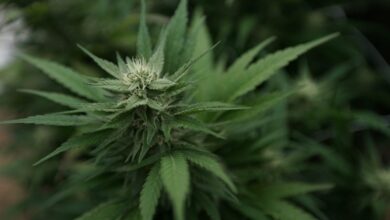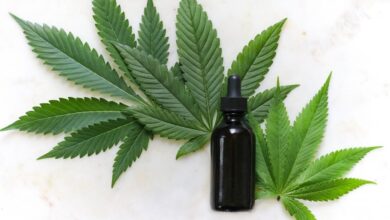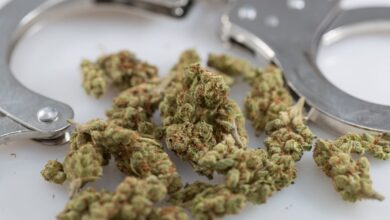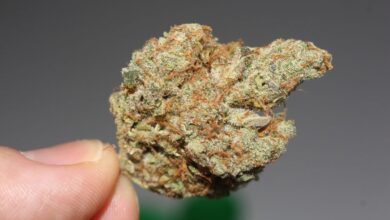New Washington Bills Would Legalize Home Marijuana Cultivation And Allow Producers To Sell Cannabis Directly To Consumers

A pair of recent payments launched in Washington State this week would make modifications to current marijuana legal guidelines, allowing producers to promote flower on to customers and permitting residence hashish cultivation by adults for private use.
Each payments are set to be heard in committee subsequent week.
HB 1449, from Rep. Shelley Kloba (D), would permit adults aged 21 and older to develop as much as six hashish vegetation at residence for private use, with households capped at 15 vegetation no matter what number of adults reside on the premises. Folks might additionally lawfully hold the marijuana produced by these vegetation regardless of the state’s current one-ounce restrict on possession.
The measure can be thought of on Tuesday by the Home Shopper Safety and Enterprise Committee.
If enacted, it could be a Class 3 civil infraction if the hashish vegetation or merchandise had been inside public view or could possibly be “readily smelled” from a public place or one other personal housing unit.
At the moment it’s a felony in Washington State for adults to develop their very own hashish except they’re state-registered medical marijuana sufferers.
Kloba has repeatedly sponsored hashish homegrow laws lately, however every time the proposal has fallen brief. An identical effort final 12 months died in committee with out getting a vote.
Legislative efforts to permit private marijuana cultivation stretch again to no less than 2015, however up to now every has failed.
The Hashish Alliance, a commerce group representing a spread of marijuana and ancillary companies, believes this 12 months could possibly be totally different. Govt Director Caitlein Ryan mentioned in an e-mail to Marijuana Second that the group “is optimistic that this 12 months’s residence develop invoice has a stronger probability of passing than earlier makes an attempt.”
“With 21 states and D.C. already embracing homegrow, it’s clear that is now not an experiment however a confirmed norm,” Ryan mentioned. “The invoice displays almost a decade of refinement, broad stakeholder enter, and rising legislative help, as evidenced by its vital variety of co-sponsors.”
She added that push from some trade members has weakened lately, “with licensees recognizing that homegrow enhances appreciation for his or her choices moderately than competing with them,” and that opposition testimony normally has been “dwindling annually.”
Whereas some state teams, such because the Washington Affiliation of Sheriffs and Police Chiefs and the Washington Affiliation for Substance Abuse and Violence Prevention “stay opposed,” Ryan continued, “the altering make-up of committees, new management, and a broader coalition of supporters—together with recognition from the Governor’s Hashish and Social Fairness Workgroup—make this probably the most promising surroundings but for passing homegrow laws.”
As of Friday, HB 1449 has 15 listed co-sponsors along with Kloba herself.
Final February, after the failure of Kloba’s earlier homegrow invoice, the lawmaker mentioned she was undeterred and was already planning the subsequent invoice.
“I’m dedicated to this problem, and plan to run a invoice once more subsequent session,” Kloba informed Marijuana Second on the time. “Each session has its personal character and constraints, which up to now have meant that the invoice has not superior to the Senate. However I’m not giving up.”
Regardless of being among the many first states to legalize marijuana for grownup use, in 2012, Washington is likely one of the few authorized states the place it stays against the law for adults to develop a hashish plant for their very own use.
John Kingsbury, co-founder of advocacy group Homegrow Washington, mentioned he’s “all in” on the invoice.
“Actually Washington being in the back of this one, with residence rising turning into the norm, and with legislators and group leaders turning into extra conscious of the impacts, the professional tent has change into bigger,” he mentioned in an e-mail, including that licensed companies have additionally “come to understand that residence [growing] might probably improve the appreciation and worth of what they supply, moderately than competing with it.”
One other new invoice being thought of by lawmakers this session, SB 5403, would permit hashish producers to promote as much as 1,000 kilos of marijuana per 12 months on to customers, with out having to undergo a licensed retail retailer. It’s set to go earlier than the Senate Labor and Commerce Committee on Monday.
Micah Sherman, operations director and proprietor of hashish grower Raven and a board member of the Washington Solar and Craft Growers Affiliation, mentioned he’s been pushing for direct-to-consumers gross sales for years. In his eyes, it’s a method to help small-scale, craft hashish with out upsetting the present market.
As launched, the measure from Sen. Rebecca Saldaña (D) would permit licensed hashish producers to promote their very own marijuana flower on to customers. Merchandise would should be produced and processed on the licensee’s personal location, and state hashish regulators might set additional guidelines and restrictions.
Gross sales could be taxed on the similar 37 p.c price that applies to different shopper hashish transactions.
One probably change, mentioned Sherman, who labored with Saldaña and legislative employees to draft the brand new invoice, is that the invoice can be amended to permit licensees to promote solely as much as 1,000 kilos of hashish per 12 months to customers. That, he defined, is supposed to restrict the proposal’s affect on current retailers and encourage craft growers to give attention to premium merchandise.
“Desirous to have a viable enterprise ecosystem the place you should buy high quality flower grown by individuals who care about what they’re doing,” Sherman mentioned, “that’s what this invoice is about preserving.”
He urged supporters to enroll to present public comment on the invoice at Monday’s listening to.
Again once more, eighth 12 months engaged on this. Hashish farmers want a direct path to customers for hashish legalization to succeed. It is a vital part.
For those who’re in Washington and wish this coverage please get in contact along with your #waleg rep and allow them to know. pic.twitter.com/XVinutbVgT
— Micah Sherman (@shermanmicah) January 21, 2025
At the moment, Sherman mentioned, small hashish farmers are caught in an unsustainable enterprise mannequin. As a result of the state bans vertical integration, they’re reliant on different licensed retailers to hold their merchandise.
Because the state’s adult-use marijuana market has matured, “the chance to purchase a variety of high quality merchandise, grown by good companies, has lessened,” he asserted. “Quite a lot of these folks have gone out of enterprise and are going to proceed to exit of enterprise if one thing like this isn’t applied.”
Sherman mentioned his personal firm, Raven, “is just not a viable enterprise enterprise,” including that “that is true of most small hashish farms within the state, as a result of we’re all hanging on, ready for there to be some type of change to the system that we function in.”
He described the change as complementary to the state’s current marijuana market, saying it could assist higher educate customers and probably shrink the illicit market.
“Our declare is that this has at all times been an additive idea and that we’re going to deliver enterprise in that at the moment isn’t collaborating within the authorized, regulated market,” he mentioned. “Everyone knows that there’s a core group of hashish customers that won’t take part within the dispensary mannequin.”
“Till the authorized, regulated system acknowledges that and lets that be a relationship that exists,” Sherman continued, “we’re by no means going to have these folks take part.”
Direct-to-consumer gross sales are already allowed in some jurisdictions, particularly amongst small, so-called microbusinesses. And lawmakers in some states, like California and New York, have equally moved to permit producers to promote to instantly customers.
Final month, for instance, New York Gov. Kathy Hochul (D) signed a invoice into legislation to revive the state’s expired Hashish Growers Showcase program, via which producers can promote merchandise on to customers at farmers market-style occasions.
In California, nonetheless, Gov. Gavin Newsom (D) final 12 months vetoed a lawmaker-approved invoice that might have allowed small growers to promote their merchandise to customers at state-organized farmers markets.
—
Marijuana Second is monitoring a whole bunch of hashish, psychedelics and drug coverage payments in state legislatures and Congress this 12 months. Patreon supporters pledging no less than $25/month get entry to our interactive maps, charts and listening to calendar so that they don’t miss any developments.![]()
Study extra about our marijuana invoice tracker and change into a supporter on Patreon to get entry.
—
Newsom mentioned in a veto message on the time that whereas he appreciated “the creator’s intent to help small and fairness hashish cultivators,” he was “involved that the invoice’s broad eligibility, which extends to the overwhelming majority of licensed cultivators, would undermine the present retail licensing framework and place vital pressure on the Division of Hashish Management’s means to control and implement compliance.”
In the meantime, as the brand new legislative session kicks off in Washington State, some lawmakers are renewing a push to legalize psilocybin companies via a invoice that might create a regulated psychedelics system aimed toward selling psychological well being and wellness.
The measure, SB 5201, led by Sen. Jesse Salomon (D) together with eight cosponsors, is a revised model of laws he filed in 2023 that might have legalized psilocybin and psilocin—the 2 fundamental psychoactive chemical substances in psychedelic mushrooms—in a style just like current legal guidelines in Oregon and Colorado. It could permit adults 21 and older to legally use the substances with the help of a educated facilitator, with product producers, service facilities and testing labs licensed by the state.
Exterior the legislature, organizers in Washington are individually working to place a measure on the state’s poll that might legalize a lot of plant- and fungi-based psychedelics for private use, together with psilocybin mushrooms, mescaline and DMT.




